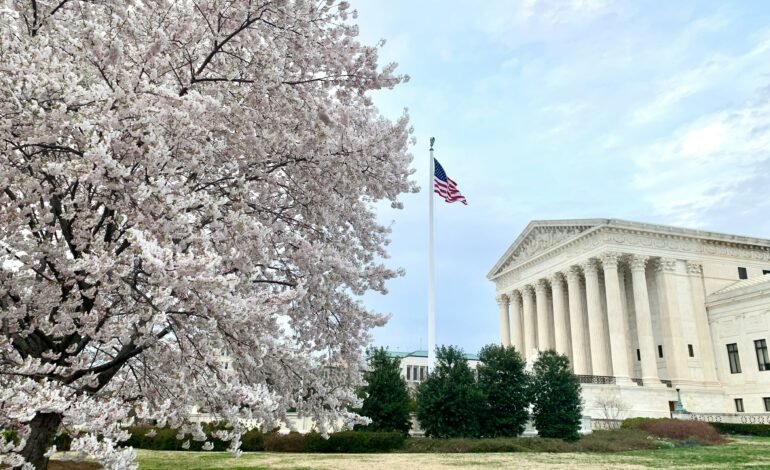Supreme Court Limits the Power of Federal Judges
Supreme Court limits judicial power by restricting national orders, impacting Trump's birthright citizenship order.

Photo by Bill Mason via Unsplash
The United States Supreme Court has decided to limit the power of federal courts to issue nationwide injunctions. The Court issued this decision on Friday, June 27—one of the last cases remaining on the court calendar for this summer.
This decision represents a victory for the Trump administration, which has battled with federal judges who have attempted to block its administrative efforts with court orders. The most prominent of these cases involves the Executive Order 14160, signed by Trump on his first day in office. This order limits the right to U.S. citizenship for people born in the United States.
The Supreme Court and the Citizenship by Birth
Executive Order 14160 adjusts the requirements for U.S. citizenship. The U.S. Constitution declares that any person born on U.S. soil must be granted U.S. citizenship. However, Executive Order 14160 seeks to limit this right by denying citizenship to the children of illegal immigrants.
Trump named this order: “Protecting the Meaning and Value of American Citizenship.” It is one of several controversial executive orders the president signed in the first months of his presidency, similar to his Order 14172, which changed the name of the Gulf of Mexico to the Gulf of America. The president has been heavily criticized for his use of executive orders, which use presidential authority to override the legislative system that creates laws through Congress.
How much power should federal judges have?
Several federal judges States like Washington and Massachusetts have paused Executive Order 14160 through court orders. Federal court orders typically apply to cases with statewide effect and do not extend their authority nationwide.
The Supreme Court did not sit to decide whether Trump's Executive Order violated the Constitution. The Court sat to decide whether federal judges should have the authority to issue orders that affect the entire country, including executive branch actions.
In a 6-3 decision, the Court stated that judges, in most cases, do not have this authority: “When a court concludes that the Executive Branch has acted unlawfully, the answer is not that the court itself also exceeds its authority.”
This decision nullifies the current pause in the president's executive order, but does not legalize it. Federal courts will continue to debate birthright, but this decision prevents a single judge from halting the process nationwide.
For more stories like this, follow More Latin.
Sources:
